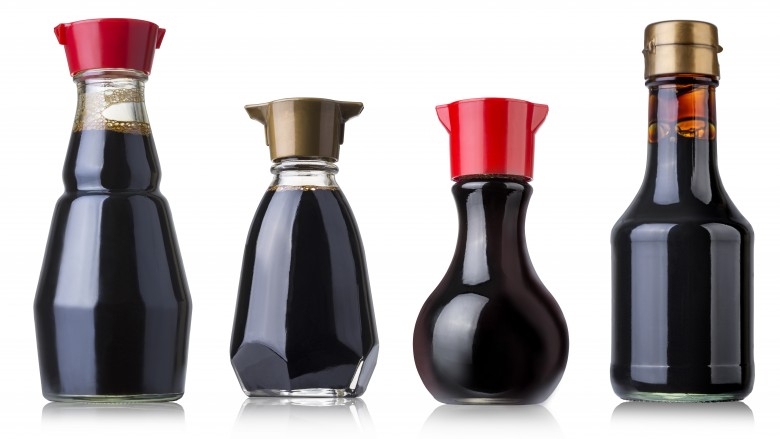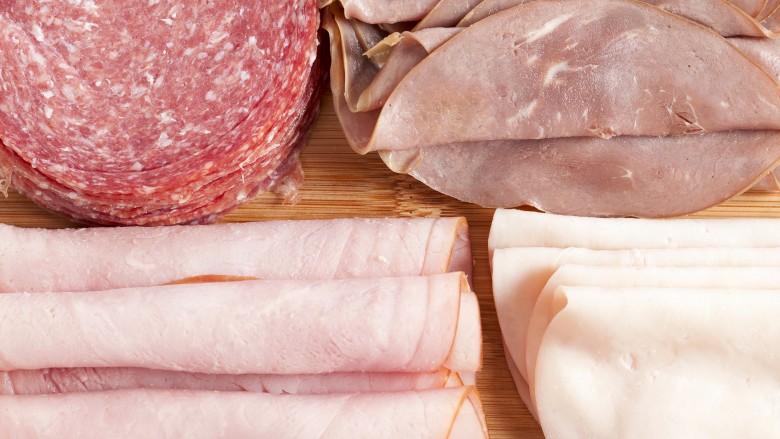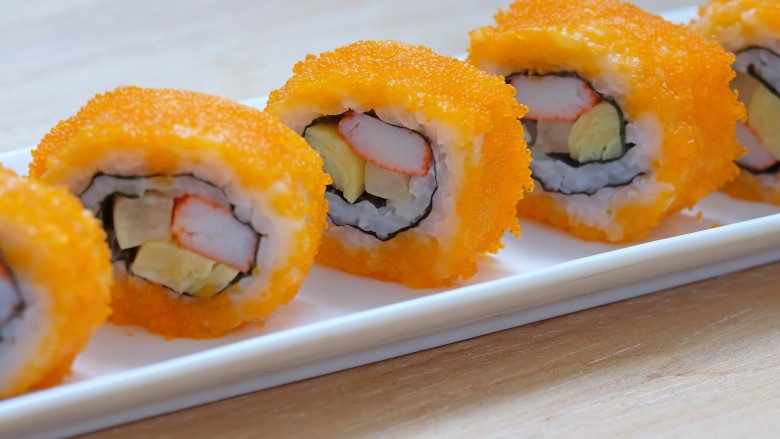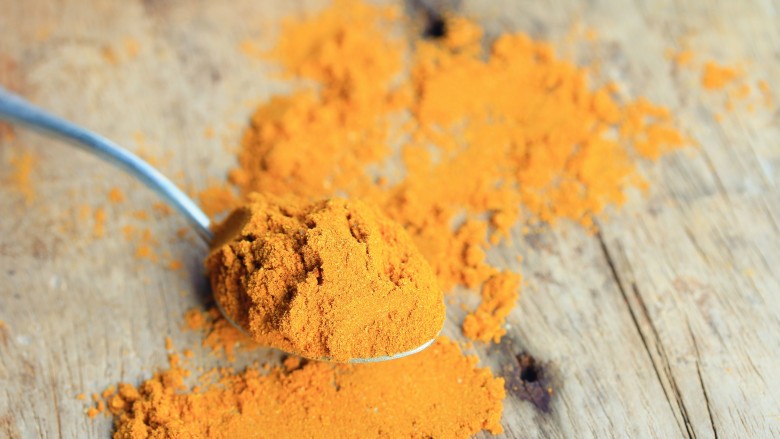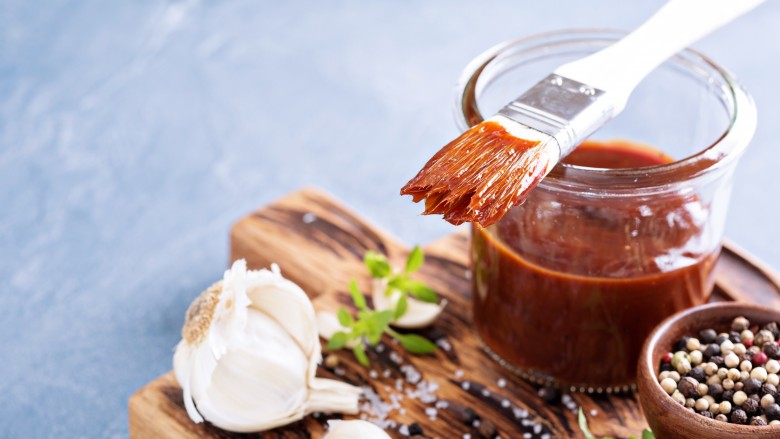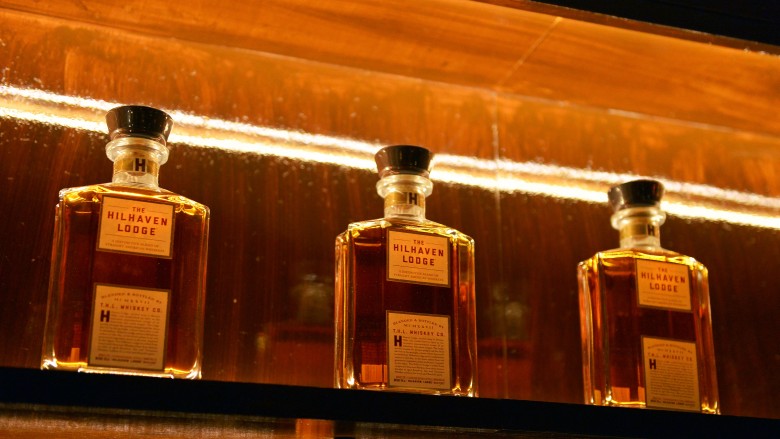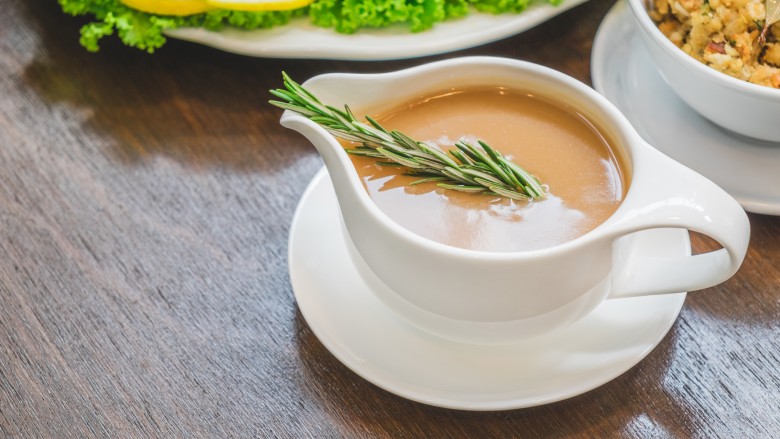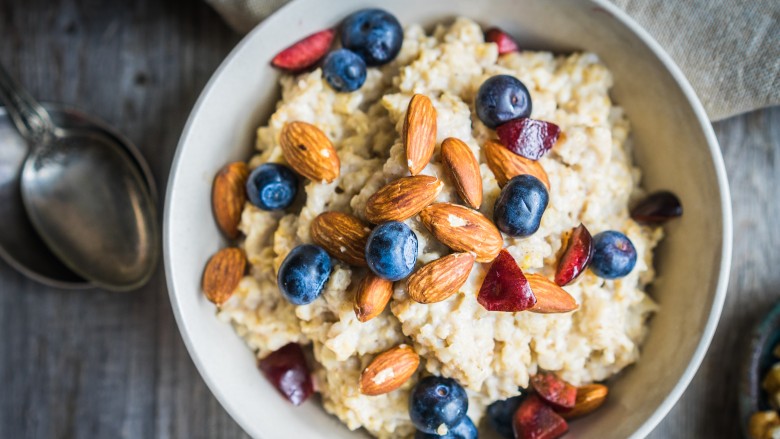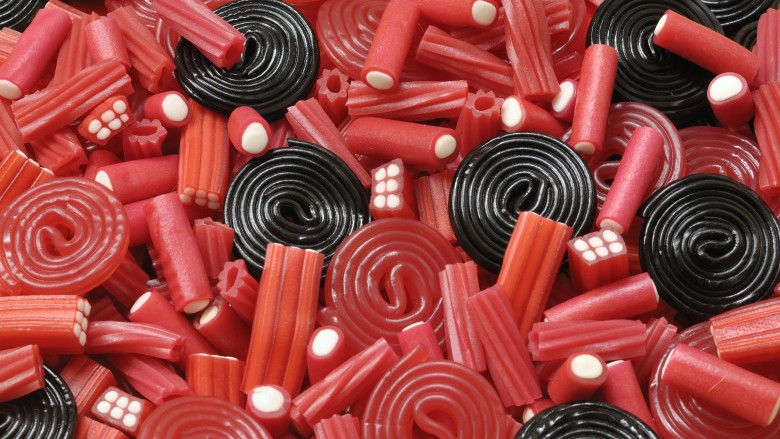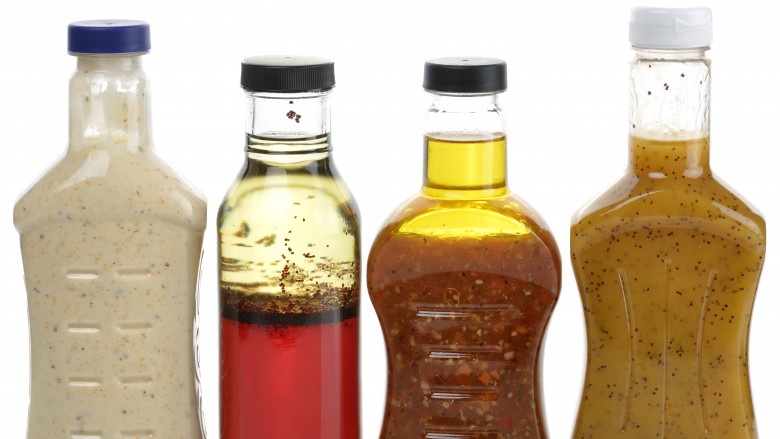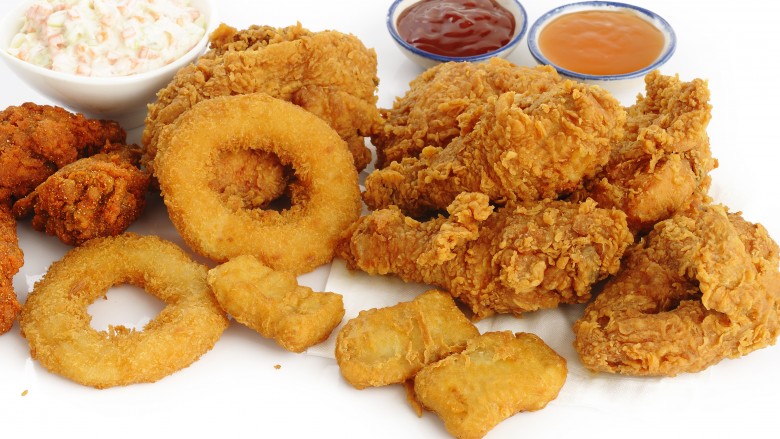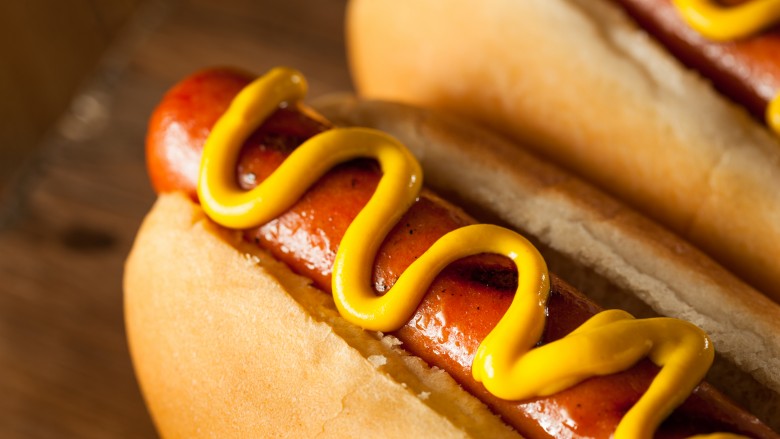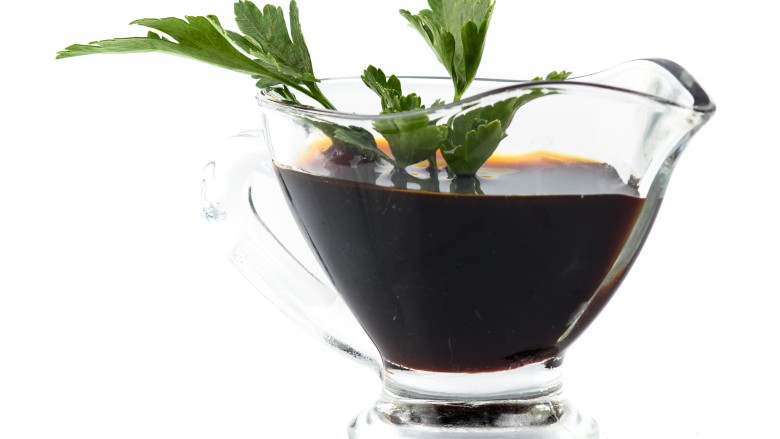Foods You Didn't Know Have Gluten
Nowadays, it seems like everyone's gluten-free. People eschew pasta, bread, cereals, beer, and baked goods because they contain gluten. They both proudly and nervously tell friends, family, and servers that they're gluten-free, reiterating that they cannot eat anything containing gluten under any circumstances. For some, avoiding gluten is a (perfectly legitimate) choice, but others find that the slightest bit of gluten causes them to fall seriously ill. For the latter group, abstaining from anything that contains gluten is a serious necessity, not a lifestyle choice. What is gluten, really? According to the Celiac Disease Foundation, gluten is the term used for proteins from wheat, rye, barley, and triticale, which is a cross between wheat and rye. When you knead bread dough, for instance, you're trying to develop the gluten in the flour, which will help give the bread structure. Buckwheat, despite the potentially confusing name, is not related to wheat and is naturally gluten-free.
Whether gluten-sensitive or allergic, it's serious, and cross-contamination with other foods is a major concern. Perhaps even more dangerous than cross-contamination is gluten hiding in plain sight. There's gluten in many foods that you would never guess contain gluten, which is, of course, a problem for those who experience terrible side effects whenever they eat even a whisper of wheat, rye, or barley, which the Celiac Disease Foundation considers "The Big 3."
If you desperately need to avoid gluten, you may not expect to need to avoid Americanized Chinese food, deli sandwiches, or gummy candies, but knowing what foods might trip you up and may make you ill is definitely preferable to feeling miserable or compromising your health. These sneaky foods that you most likely have in your pantry, refrigerator, or freezer might contain gluten, so make sure you read it before you eat it.
Soy sauce
That's right, soy sauce is often not gluten-free, though you might think that it should be. According to the Cleveland Clinic, you should avoid soy sauce if you need to stay away from gluten. Most regular soy sauce is made from wheat and soy, though gluten-free soy sauce usually isn't too hard to track down. While some research says that finished, fermented Japanese soy sauce (sometimes labeled as "shoyu") doesn't contain the allergenic components from wheat, you may still want to avoid it unless you're confident it won't make you sick. If you have a gluten allergy or sensitivity and want to make sure what you're eating will be OK, make sure your bottle specifically says "gluten-free."
Deli meats
When I first found out that deli meats aren't always gluten-free, I was a little upset. After all, deli meats should, theoretically, just be thinly-sliced meats, right? Just meat, no gluten-containing ingredients. As it turns out, though, some deli meats use wheat products as a filler. According to the Mayo Clinic, those who need to follow a gluten-free diet should avoid processed lunch meats unless they're labeled as gluten-free.
Imitation crab meat
This isn't the real-deal crab meat I'm talking about here, but it is the version often found in California rolls at the grocery store or your favorite sushi spot. This product is typically fish mixed with wheat starches, as reported by Rodale's Organic Life. Gluten intolerant? Make sure the crab you're eating isn't imitation.
Curry powder
Curry powder may have been cross-contaminated with something containing gluten or had it intentionally added by the manufacturer. According to the The Daily Meal, wheat is sometimes added to curry powder specifically to help ensure that the cooked texture of the spice will be smooth.
Barbecue sauce
At a backyard cookout? Drop that bottle of barbecue sauce. Some bottled barbecue sauces use wheat-based or starchy thickeners, according to Verywell. Additionally, barley malt flour (which contains gluten) is sometimes used to make natural smoke flavorings, which are then added to bottled barbecue sauces. Read the label or double check with the chef.
Whiskey, bourbon, and rye (maybe)
This is one that's up for debate. As Food Republic reported, the National Institutes of Health's Celiac Disease Awareness Campaign says that all distilled spirits (including whiskey, bourbon, and rye, which are all made from gluten-containing grains) are naturally gluten-free due to the distilling process. The Celiac Disease Foundation also says that hard alcohol is gluten-free. If you're gluten intolerant, however, it may be best to try these spirits cautiously, as some highly sensitive people may react to it, as noted by Verywell.
Pickles
While pickles don't contain gluten in and of themselves, if they're brined in malt vinegar, they're technically not gluten-free. According to the University of Chicago Medicine Celiac Disease Center, malt vinegar is a barley derivative and is not distilled, which means you can bet it contains gluten. Stick to pickles brined in distilled vinegar or salt and you should be all set.
Soups and sauces
Commercially-made soups and lots of sauces (either homemade or store-bought) are often full of gluten. According to Better Homes & Gardens, bouillon, stock, and thickeners are all common culprits. Gravies are especially likely to contain gluten, so be careful. Look for soups and sauces that use cornstarch in place of flour and make sure you read ingredient labels carefully.
Oats and oatmeal
Oats themselves are naturally gluten-free, so how can some processed oats or oatmeal contain gluten? Cross-contamination is typically to blame, according to The Kitchn. The same machines used to harvest and process wheat, barley, and rye may be used to harvest and process oats unless special consideration is taken. Make sure the oats and oatmeal packets you buy are clearly labeled "gluten-free."
Licorice and chewy candies
Candy can contain gluten? Yes. Licorice often contains wheat flour, which means it's definitely not gluten-free. You can find brands that sell a gluten-free version, however, so if gluten is a definite no-go, you don't have to give up gummies altogether.
Pre-made salad dressings
While you may not add any gluten-containing ingredients to your homemade dressings, according to CafeMom, store-bought salad dressings sometimes contain wheat-based and starchy products as thickeners to make your dressing viscous and achieve the right texture. While many more brands are making gluten-free options these days, don't make the assumption when you're at a restaurant that the Italian dressing you got on your salad is gluten-free. When in doubt, ask!
Chewing Gum
As it turns out, the gum you chew may not, in fact, be gluten-free. According to Verywell, not all chewing gum is gluten-free. Some brands either use ingredients that may contain gluten or simply don't test for gluten during production. Look for a safe, gluten-free chewing gum instead.
Fried foods
Fried foods are often covered in doughy, flour-based batters before taking a dip in the deep fryer. And even if they themselves don't have a coating of batter, if battered foods were fried in that fryer without changing the oil, they could cross-contaminate other fried foods (like naturally gluten-free french fries), according to Healthline. Even if something is listed as cornmeal-battered, it still may not be safe. That's because sometimes restaurants use a cornmeal mix (that also contains flour) instead of a pure cornmeal. Yikes! That's a tricky one.
Ice cream
I know, how could ice cream not be gluten-free? Well, most are, in fact, gluten-free, so you can breathe a sigh of relief. However, according to Verywell, some ice creams are made with wheat flour (though, again, most are not). Gluten content can also vary by flavor, which is important to keep in mind if you're gluten intolerant. Additionally, if you're planning on mixing any sweet treats into your ice cream, remember that cookie and brownie pieces, some candies, and some sprinkles aren't gluten-free, which would make your whole sugary concoction unsafe.
Hot dogs
What is gluten doing in meat products? Even if you're doing the obvious and ditching the buns for your hot dogs and sausages, you still may not be in the clear. According to Paste, some hot dogs and sausages use flours as binders and fillers, so it's important to read the label carefully before eating. More companies that produce hot dogs and sausages are ditching gluten-containing products, however, so it's likely your brand of choice is safe. That being said, for those who are gluten intolerant, better safe than sorry.
Multivitamins
So multivitamins aren't exactly a food per se, but if you're gluten intolerant, it's important to know that many multivitamins and medications are not gluten-free. According to CafeMom, talking to your pharmacist is the best way to know whether or not your medications, vitamins, and supplements are safe for you to take. Additionally, be extra careful when it comes to generic versions, as they may contain starchy fillers.
Worcestershire sauce
Worcestershire sauce is the magic ingredient in a lot of different foods, but it's made from malt vinegar (among many other things), which means it's not a gluten-free food, according to the Canadian Celiac Association's Newfoundland and Labrador Chapter. Hamburgers and marinades are often seasoned with Worcestershire, making them sneaky sources of gluten. Make sure to ask if you're unsure, or read the label carefully. Some brands actually are gluten-free.
Make sure you always read the labels
Educating yourself on various different derivations of gluten-containing ingredients before shopping or eating is important, but if you're not sure what an ingredient on the label is, looking it up and determining if it might later make you sick is important. Ultimately, there are many foods that contain gluten and it isn't always obvious just by looking at them, so reading the labels or asking questions of those who might know what a product contains is the best way to keep yourself safe and healthy.


